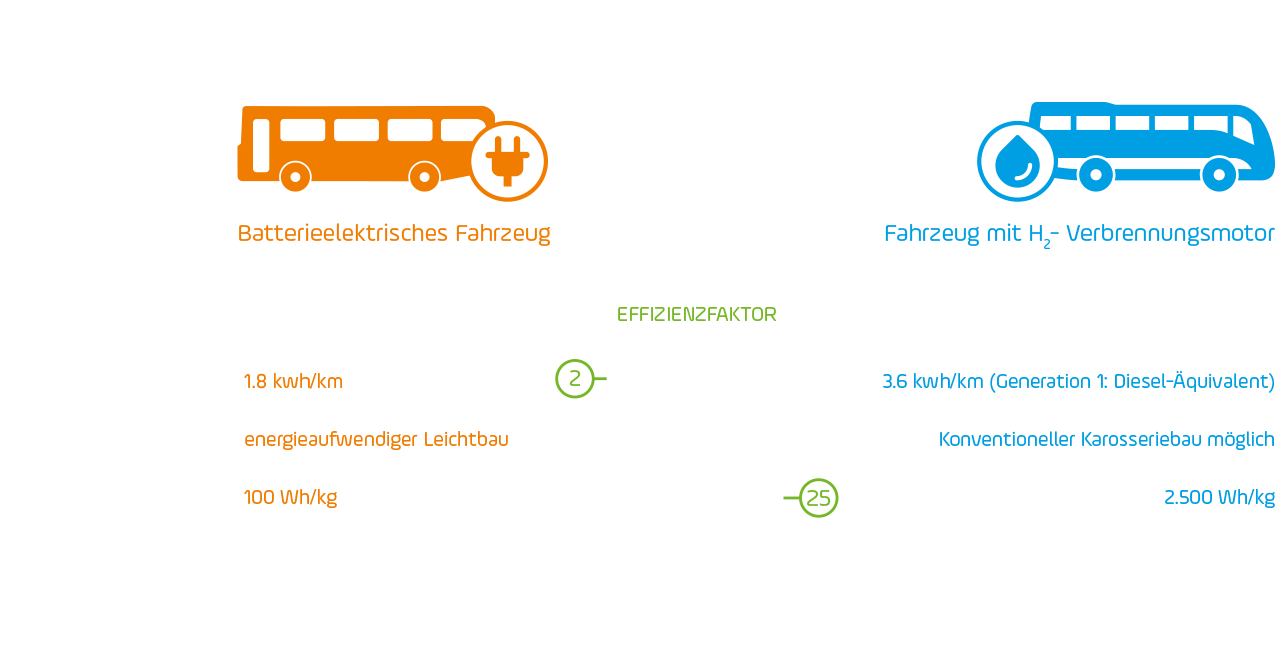“The only way to successfully revolutionise energy and mobility is to deploy hydrogen as an energy store and fuel”
KEYOU is putting its faith in hydrogen. One kilogramme of hydrogen contains 33.33 kWh of usable energy, giving it the highest energy content of any fuel. Hydrogen is safe to use, is found practically everywhere and will never run out. But above all else, hydrogen is clean, as it burns with zero emissions. The only thing to escape from KEYOU engines is harmless water vapour.
Even if hydrogen has to be produced, since it is only available in combined form, new methods are making the process of generating H2 greener and more cost-effective all the time: hydrogen produced from renewable energies can be almost CO2-neutral.
So we have barely scratched the surface of hydrogen’s potential as a replacement for fossil fuels, plus it can be stored directly as a fuel or used to generate electricity. The potential of hydrogen to replace fossil fuels is far from exhausted – just the contrary: Hydrogen is going to be an essential and irreplaceable cornerstone for a successful energy- and mobility transformation.
“Hydrogen storage is decades ahead of electric battery storage”
It is true that hydrogen storage is still in its infancy. But if we look at the lithium-ion batteries currently used in high-mileage commercial vehicles (60,000 – 100,000 km/year), which today have a gravimetric energy storage density of 100 Wh/kg, hydrogen storage is much more efficient: 350 bar H2 high-pressure storage systems available nowadays already offer an energy storage density 18 times higher than this at 1800 Wh/kg.
Even assuming that a new generation of batteries (generation IV) would exist from 2025 onwards, hydrogen’s specific storage characteristics means that it has a much greater potential for development and cost reduction than batteries. As sales increase, it will be possible to produce hydrogen storage systems that are disproportionately more cost-effective than battery storage systems. The cost benefit of hydrogen storage systems, which is already high, will continue to rise as time goes on and what’s more, batteries will never be able to outperform the key advantage of hydrogen storage, i.e. its energy density.

One of the benefits that hydrogen storage systems have over electrical storage is the low cost of materials for the enclosure (hydrogen tank). When it comes to manufacturing costs, the high cost of the raw materials and energy needed to produce batteries is a significant drawback, leading to a price difference at today’s level of almost € 900 per stored kWh of energy when compared to hydrogen.
A report produced by the German Bundestag on the topic of surplus electricity quotes André Thess, Professor of Energy Storage at the University of Stuttgart, as saying that the price of batteries would have to come down to a tenth of what it is now to make the introduction of electric cars in cities a viable optionprice of batteries would have to come down to a tenth of what it is now to make the introduction of electric cars in cities a viable option.“The battery is still the weak link in electric vehicles”
The KEYOU hydrogen internal combustion engine concept has managed to resolve the conflicting objectives associated with alternative drive technologies in terms of emissions, efficiency and specific power. If we consider product efficiency as a whole, a commercial vehicle featuring KEYOU-inside H2 technology performs much better than a battery-powered commercial vehicle.

A hydrogen vehicle offers significant advantages over a battery-powered electric vehicle:

Electric vehicles are attractive primarily because they are deemed to have an extremely efficient electric drive train. However, compare the efficiency of electrical energy storage is to store (in an accumulator/battery) as opposed to hydrogen and it soon becomes clear that hydrogen storage is streets ahead. Another advantage is that it takes much less water, energy and raw materials to produce hydrogen than today’s lithium-ion batteries. So overall, hydrogen storage systems score much higher than batteries when it comes to energy storage capacity and also have much lower production costs.
If we stop focussing solely on the drive train and compare the efficiency of energy storage too, we see that the inefficiency of battery electric vehicles is largely due to the inefficiency of the electrical storage system, high costs, low driving ranges and the low payload when compared to vehicles equipped with hydrogen combustion engines. Both storage technologies have natural physical differences, however, the advantages hydrogen storage has over battery storage will continue to increase as mass production takes hold.